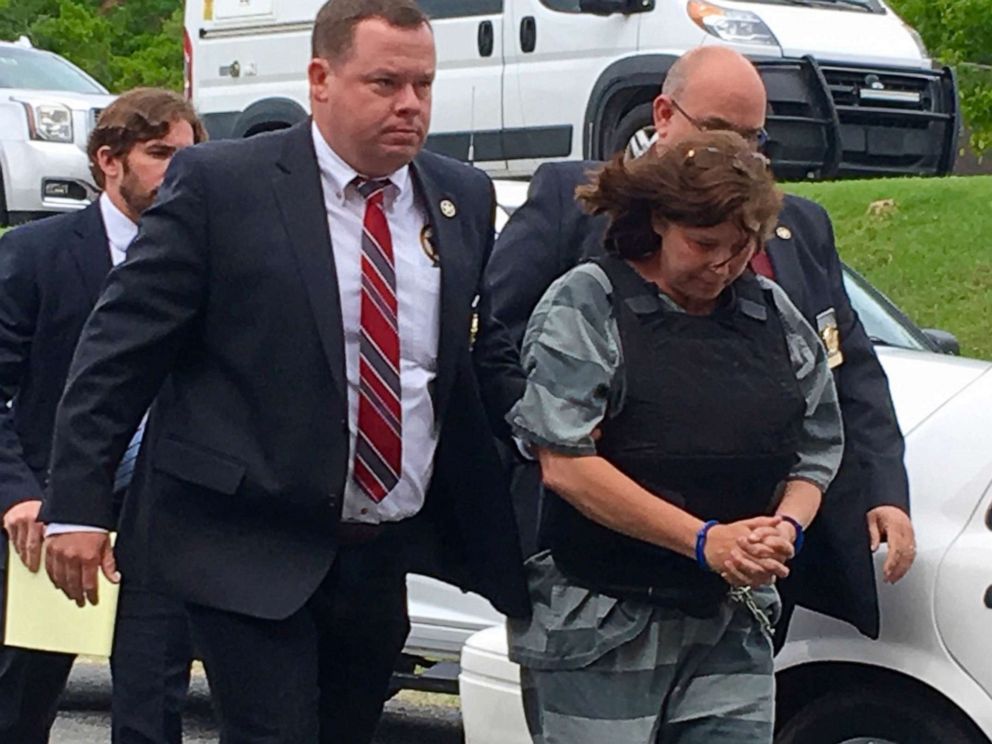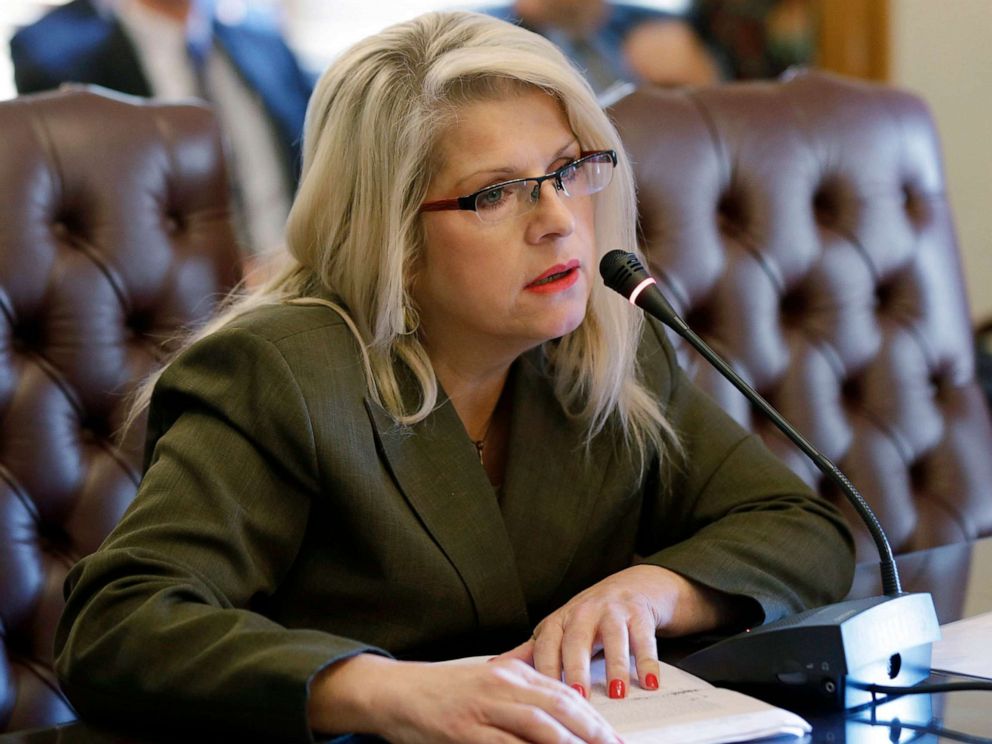Along the Black River in northeastern Arkansas, the mystery of Linda Collins-Smith and Rebecca Lynn O’Donnell continues to deepen.
Collins-Smith, 48, was the well-to-do businesswoman and ex-state senator found dead at her Pocahontas, Arkansas, home on June 4. O’Donnell, 49, was her friend and employee who now stands accused of the murder in a case that could end with the death penalty.
But still, six months after O’Donnell was arrested, there are more questions than answers.
In June, O’Donnell’s fiance, Tim Loggains, said in an interview with ABC News, that O’Donnell and Collins-Smith “were very close.:
“Becky’s not capable of this. … There’s not a chance she did this,” he said.
Prosecutors and investigators have yet to explain their case or what the motive was for O’Donnell to allegedly commit such a heinous crime. The judge overseeing the case has imposed a gag order so rigid that defense lawyers and court staff refuse to discuss even the most mundane scheduling matters connected with it. Then, the judge, David Goodson, took himself off the case on Tuesday and asked the Arkansas Supreme Court to appoint a replacement, according to Supreme Court records.
 John Lee McLaughlin/The Jonesboro Sun via AP, FILE
John Lee McLaughlin/The Jonesboro Sun via AP, FILE
On top of that, without warning or stated justification, jailers last week placed O’Donnell under the strictest detention protocols even as they admit the woman has been a model inmate since being arrested in June.
“The family was informed Becky had been placed on ‘investigative status’ and was not allowed visits, phone calls or any contact with prisoners or anyone else except for her attorneys,” her fiancé, Tim Loggains, told ABC News in an interview. “We, the family, had been trying to reach Becky and assumed the phones were not working or there was technical issues with the machinery. There was no reason given for this ‘investigative status.’ In fact, we were told that Becky had violated no jail rules.”
Loggains said the jail told him that the restrictions took effect on Nov. 18. That same day, the judge in the case, David Goodson, denied a motion by ABC News to have the restrictions on the case lifted or modified so the public could learn why O’Donnell was charged and what type of evidence connects her to the death of Collins-Smith.
Jackson County Sheriff David Lucas, who runs the jail housing O’Donnell, said in an interview that “the Arkansas State Police has requested the administrative lockdown on her. They had contacted us and requested us to place her on administrative lockdown and restrict her visits.”
Lucas also confirmed his jail staff hasn’t “had any disciplinary problems with her.”
When ABC News contacted state police Tuesday morning, spokesman Bill Sadler first insisted that his agency “has no jurisdiction to dictate to a local sheriff the conditions under which an inmate is held. I’m telling you the Arkansas State Police has no authority to issue any such order.”
Sadler called back a few hours later to say the state police did contact the jail to suggest that staff might want to consider placing O’Donnell under no-contact restrictions. But, he said, that was only done because of the violent nature of the alleged crimes. O’Donnell has been charged with capital murder, abuse of a corpse and tampering with physical evidence.
Collins-Smith’s son, Butch Smith, called police on the afternoon of June 4 to report that he and his grandfather were searching for his mother at her home because they hadn’t heard from her. She was last seen alive on May 28. Smith told detectives he found a body wrapped in a blanket under a tarp in the driveway; it was later determined to be the former state senator.
 Danny Johnston/AP, FILE
Danny Johnston/AP, FILE
The condition of Collins-Smith’s body “prevented any immediate positive identification,” Randolph County Sheriff Kevin Bell told reporters in June. An autopsy determined that the woman died of multiple stab wounds. In addition, her body had been moved from inside the home to the driveway and was in an “advanced state of decomposition” by the time it was found.
O’Donnell has pleaded not guilty and is being held without bond.
Holly Dickson of the Arkansas chapter of the American Civil Liberties Union said no police agency in her state has the right to interfere with the way an inmate’s detention is handled. And, she said, any restrictions must be explained and have a legitimate basis – like infraction of jailhouse rules, for instance.
“Administrative segregation must be based on a correctional reason, whether it be safety of the inmate or other factors,” said Dickson, the organization’s chief attorney and interim executive director. “Sheriffs are responsible for running and maintaining their jails. If there’s not a court order dictating something, the state police has no role. Certainly, it’s appropriate for a sheriff to listen to anyone having information. But by state statute, the sheriff has the duty and responsibility to provide for the housing circumstances of an inmate.”
Defense attorney Lee Short told ABC News he has “no comment to make on any matters related to Rebecca O’Donnell.” He did not respond to questions about O’Donnell’s jail restrictions.
Goodson declined to comment when reached by ABC News. Prosecutor Henry Boyce has repeatedly declined to comment, citing the gag order.
During a brief hearing in Pocahontas last week, the judge set a tentative trial date for next October. That came over the objection of attorneys for O’Donnell who told the court prosecutors have not turned over investigative information and evidence that must be supplied in order to proceed with a death-penalty case.
The parties are due to update the judge during the next hearing, now scheduled for Feb. 28, 2020.


